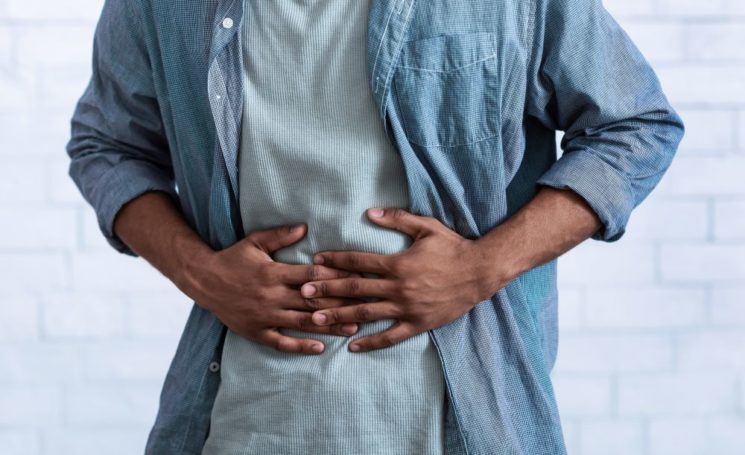
What impact does diet have on IBD?
Currently, there’s no evidence that certain foods can cure IBD. However, some people find it helps to make small changes to their diet – for example, cutting down on spicy foods or dairy products which make their symptoms worse. If cutting out certain food makes no difference, you should add them back into your diet, as you do not want to miss out on key vitamins and minerals.
It's useful keep a food diary to track what you eat and when your symptoms occur to see if there are any patterns. Most importantly, get advice from your doctor or dietitian before you make any significant changes to your diet.
How can you achieve a balanced diet with IBD?
Inflammation, IBD-related complications, and certain medications can make it difficult to have a nutrient rich diet. For example, inflammation of the small intestine can cause problems digesting food and absorbing nutrients, and inflammation of the large intestine can cause problems absorbing water and electrolytes. Therefore, it is important to be tested for vitamin and mineral deficiencies, even if you aren’t showing symptoms of malnutrition.
After a bad flare up of IBD symptoms, you might only tolerate a few foods. When this occurs, it is vital to eat lots of high calorie foods, as frequently as you can. If solid foods cause irritation or you have a poor appetite, your doctor or dietitian may recommend supplement drinks to provide additional nutrients.
What food should you avoid during a flare-up?
There are specific foods you may want to avoid when you have an IBD flare-up, as they can trigger symptoms like cramping, bloating, or diarrhoea.
These include:
- high fibre – fruit with skin and seeds, raw green vegetables, whole nuts and grains
- lactose – sugar found in dairy, like milk and cheese
- non-absorbable sugars – sugar-free options of ice cream and fruit juices (peach, pear, prune)
- sugary food – pastry, sweets, juice
- high-fat foods – butter, margarine, cream, coconut, fried foods
- alcohol and caffeinated drinks – beer, wine, spirits, fizzy drinks, tea coffee
- spicy foods – curry
If the symptoms of flare-ups cannot be managed through diet, your doctor or dietitian may suggest starting a liquid diet. This would involve the consumption of high energy, high protein supplement drinks that will provide your full nutritional requirements, and minimise irritation to your gastrointestinal tract to promote repair.
What is the best diet for an IBD sufferer?
It is crucial to maintain a varied, well-balanced diet and stay hydrated if you are living with IBD. It is also best to be cautious after a flare-up and introduce any new foods slowly.
The following foods are generally well tolerated but need to be tailored to the individual’s needs:
- high-fibre foods – oats, beans, nuts, whole grains (unless advised to continue a low-fibre diet)
- protein – lean meats, fish, eggs, nuts, tofu
- fruits and vegetables – eat a rainbow of fruit and vegetables
- calcium-rich foods – yogurt, kefir, and milk (if you are lactose intolerant, choose lactose-free dairy products or use a lactase digestive enzyme)
- probiotic foods – miso, sauerkraut, tempeh
When managing IBD, there is no single diet that works for everyone. A dietitian will work with you to create a personalised plan based on your individual triggers and symptoms.
At Cromwell Hospital, we have a world-leading nutrition and dietetics team that can help with assessing, diagnosing, and treating a range of dietary and nutritional problems.



